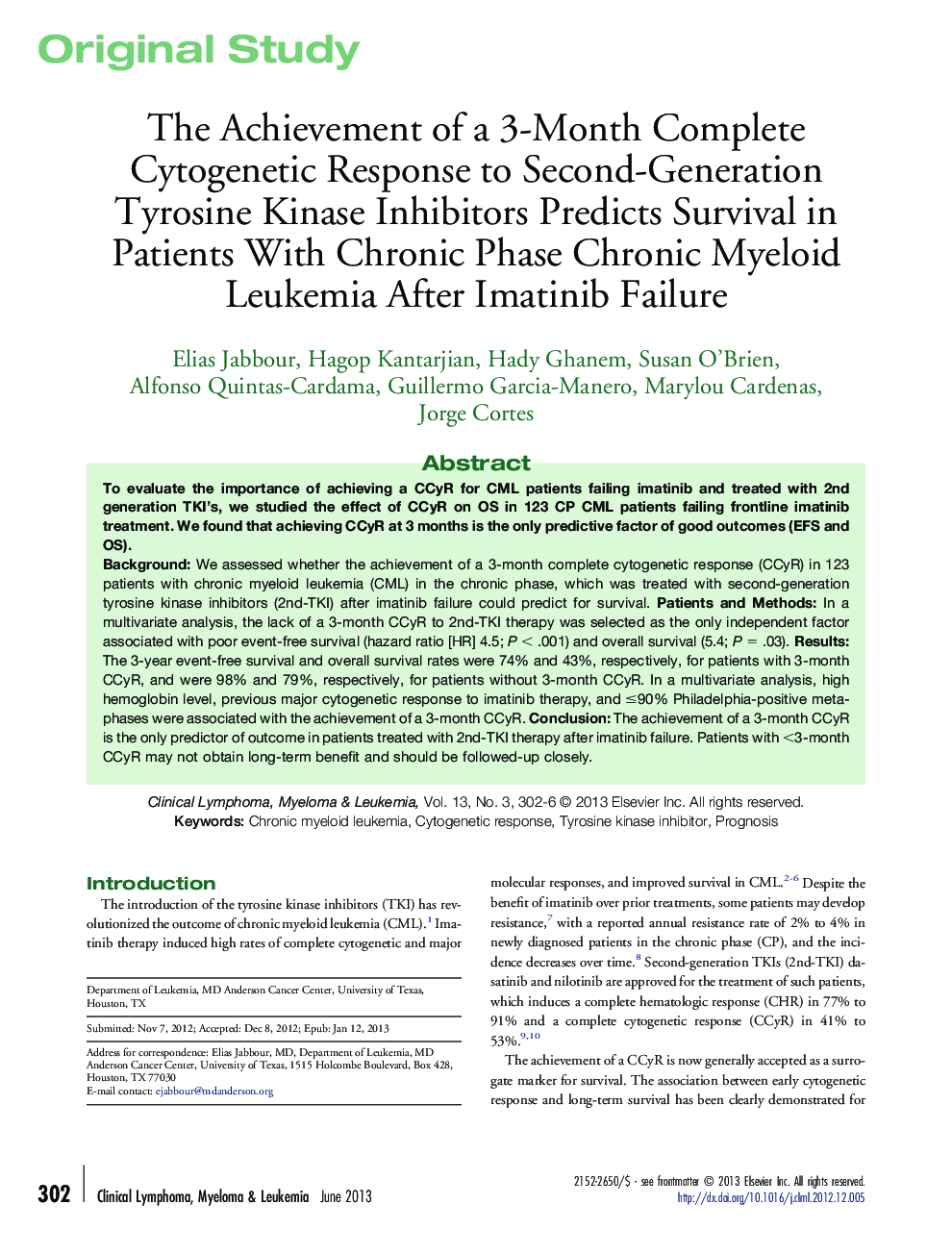| Article ID | Journal | Published Year | Pages | File Type |
|---|---|---|---|---|
| 2754790 | Clinical Lymphoma Myeloma and Leukemia | 2013 | 5 Pages |
BackgroundWe assessed whether the achievement of a 3-month complete cytogenetic response (CCyR) in 123 patients with chronic myeloid leukemia (CML) in the chronic phase, which was treated with second-generation tyrosine kinase inhibitors (2nd-TKI) after imatinib failure could predict for survival.Patients and MethodsIn a multivariate analysis, the lack of a 3-month CCyR to 2nd-TKI therapy was selected as the only independent factor associated with poor event-free survival (hazard ratio [HR] 4.5; P < .001) and overall survival (5.4; P = .03).ResultsThe 3-year event-free survival and overall survival rates were 74% and 43%, respectively, for patients with 3-month CCyR, and were 98% and 79%, respectively, for patients without 3-month CCyR. In a multivariate analysis, high hemoglobin level, previous major cytogenetic response to imatinib therapy, and ≤90% Philadelphia-positive metaphases were associated with the achievement of a 3-month CCyR.ConclusionThe achievement of a 3-month CCyR is the only predictor of outcome in patients treated with 2nd-TKI therapy after imatinib failure. Patients with <3-month CCyR may not obtain long-term benefit and should be followed-up closely.
